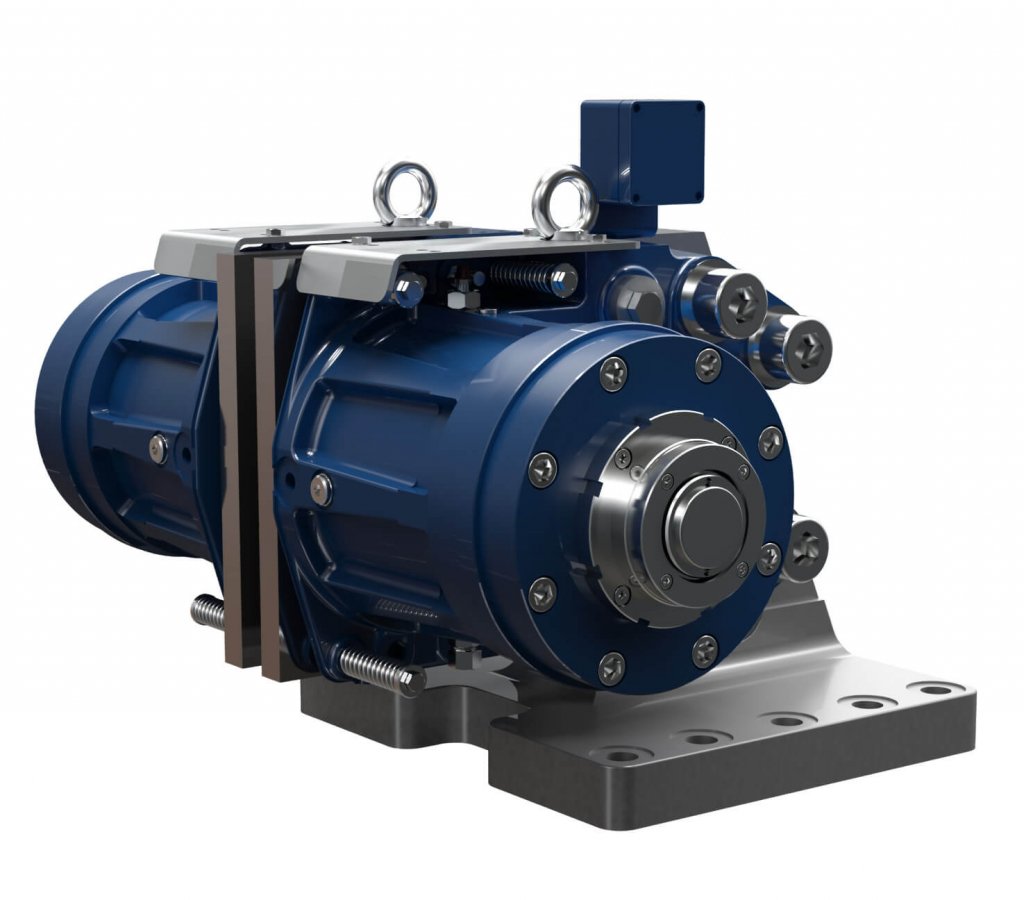Dellner Brakes, manufacturer of technologically advanced braking systems, has introduced two new spring-applied failsafe brakes to its SKP range. By combining reliable power with a modular, lightweight design and competitive prices, the brakes are set to enhance braking for wind turbines — on and offshore.

Dellner Brakes AB is certified according to ISO 9001:2008. From two large stock facilities, Dellner says it can ship spare parts to anywhere in the world within just 24 hours.
Precision engineered in Sweden, Dellner’s new SKP 180 weighs in at just 315 kg, and delivers braking force from 141 kN up to 226 kN through two brake housings, each containing a powerful spring applied piston.
The SKP 4 x 180 weighs 630 kg and combines two brake assemblies, with a total of four pistons to deliver braking force of up to 453 kN.
Dellner has also developed an offshore version of the brake, with corrosion protection and hard-wearing paint and pistons that are specially designed to withstand harsh conditions.
The new SKP’s innovative modular design also means that Dellner can provide larger systems, combining several brake assemblies or customized housings with several pistons. This means the brake can deliver even more power and be tailored to customers’ needs.
“Innovation is at the heart of what we do here at Dellner, and these new SKP brakes are no exception,” said Dellner Brakes CEO Marcus Aberg. “They have been developed in response to customer demand for a failsafe brake that’s lightweight and compact, but doesn’t compromise on strength or stopping power, and we are confident that this revolutionary design will set new standards in the market.”
The brakes come with a range of optional extras including mounting brackets, double-sealing kits, brake pads made from several different friction materials, indicators that show brake pad wear (and whether the brake is ‘on’ or ‘off,’ or needing adjustment0, and micro and/or proximity switches and electrical control boxes.
The brakes feature cylindrical guide pins that transmit the tangential braking force from the brake lining to the brake housing and mounting stand. As a result, the brake pistons are not subject to any radial forces, which makes the brakes and the cylinder seals last much longer.
As the brake lining wears, an extension of the brake piston through the adjustment nut indicates that adjustment is needed. The disc spring can be adjusted to compensate and maintain full brake capacity.
These new brakes are the latest in a long line of innovations from Dellner Brakes, which includes the launch last year of the world’s very first fully automated electrical ‘stopping, turning and locking’ (eSTL) system (patent pending).
Filed Under: News, Projects, Turbines




